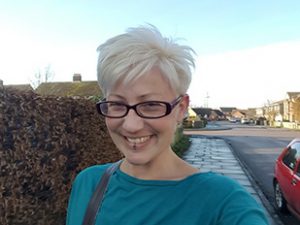 This guest post comes from Home Educating parent and friend of East Kent Sudbury School, Natasha Hawkes, and discusses the proposed new Guidelines for Local Authorities in monitoring Elective Home Education families in their districts. Whilst there are obvious differences between our school and Home Education we also share many similar values, significantly the right of everyone to choose their own education so this is an issue that is close to our hearts. Thank you to Natasha for writing this thoughtful response for our blog.
This guest post comes from Home Educating parent and friend of East Kent Sudbury School, Natasha Hawkes, and discusses the proposed new Guidelines for Local Authorities in monitoring Elective Home Education families in their districts. Whilst there are obvious differences between our school and Home Education we also share many similar values, significantly the right of everyone to choose their own education so this is an issue that is close to our hearts. Thank you to Natasha for writing this thoughtful response for our blog.
Last year a private members bill, proposed by Lord Soley, began making its way through the House of Lords declaring an immediate need for the increased monitoring and oversight of families choosing to educate their children other than at school (home educators).
The mainstream press dutifully (and erroneously in many cases), began producing articles highlighting rare and extreme cases wherein local authority oversight had either failed or was inadequate thereby justifying the draconian and invasive measure called for by the bill.
The main emphasis from the press was on ‘unseen’ children, children being potentially ‘radicalised’ and those attending ‘illegal schools’, combined with a lack of government power to protect those children. There has been very little published by way of quantitative evidence to suggest that any of the above assumptions have any basis in fact. You may also notice that there is very little mention of educational provision. The conflation of education and safe guarding is relentless.
The home education community obviously share these concerns about safe-guarding vulnerable children but, unlike the authorities, we believe the current guidelines are more than adequate as they stand. For example, where there is reason to believe that a ‘suitable education’ (currently defined as taking into account, ‘the age, aptitude and ability and with regard to any special needs’ of the child) is not being provided, they have the power to issue a School Attendance Order compelling the family to enrol their child in a school. And, where there are concerns for the safety and well-being of a child, local authorities have the power to begin any number of child protection proceedings (from MASH referrals all the way up to Child Protection Orders and Care Orders).
Lord Soley’s Bill is due to go through the committee stage in the HoL at the end of April 2018. There is a general consensus that private member’s bills rarely come into law, and that appears to be the case with this Bill as well, although Lord Soley remains confident that it will be enacted.
Irrespective of whether or not the bill becomes law, the government has issued an updated and amended set of EHE Guidelines for Local Authorities. These new guidelines and the accompanying consultation documents (https://consult.education.gov.uk/school-frameworks/home-education-call-for-evidence-and-revised-dfe-a/) were released at the beginning of April 2018 and are open to receive feedback from the public. The consultations will close on July 2nd 2018.
The length and breadth of the documents is overwhelming (even for the most seasoned of campaigners) as they impact and touch upon many other pieces of legislation, but I will endeavour to summarise the main concerns of home educators, self-directed learning advocates and progressive education theorists.
The new guidelines, whilst cunningly not going beyond the bounds of what is ‘legal’, come as close to being so as possible. They are riddled with punitive consequences for non-compliance (of non-existing ‘rules’) and very much set home educating families at odds with their local government officers.
For example, whilst not ‘required’, a right of entry into our homes is now presumed to be the default position. Up until now, it has been the choice of individual families whether or not they want the local authority officers to enter their homes and speak to their children/see their work and this is usually dependent on the amount of information and support a family feels they need. The new guidelines make it clear that any family choosing to refuse entry will be construed as ‘uncooperative’, and could find themselves with an Education Supervision Order, or even being issued with a School Attendance Order.
Not only do the guidelines empower the local authority to enter our homes, they also allow local authority officers to speak to our children without us present. Nowhere else in British life are adults allowed to speak to children without a guardian present, other than in cases where serious neglect/abuse is suspected and the child is at risk of imminent harm. Even the police are not allowed to speak to unaccompanied children.
Home education is not an indicator or abuse or neglect and is not a safeguarding issue in and of itself but will be now treated as such if the revised guidelines are passed as they stand.
The guidelines are also trying to remove a parents (and child’s) right to decide on the content of their education, which, let’s be honest, is the very essence of choosing home education. They speak of ensuring that home educated children are receiving a ‘world class education’ which of course, they have failed to define within the guidance. The home education community are asking what will that look like? Who will decide if it is world class? What will they use as a measure of world class? And countless more questions which most likely cannot be answered until a case (or cases) reach the courts.
Currently, legal responsibility of ensuring children are receiving an adequate education lies with their parents, irrespective of registering with a school or not. Home educating families choose not to delegate this responsibility to the local authority by sending their children to school so assume the full legal obligation. However, the new guidelines will once again place the local authority officer, who more than likely will not have any educational training, psychology training etc. in charge of deciding the adequacy of the home education provision. This person does not have to give any regard to the child’s wishes nor to the wishes of the parents and will be able to arbitrarily ‘judge’ the education provision based on their own biases and expectations.
A situation such as this defeats the object of choosing to provide children with a tailored home education environment that suits their needs, ability and aptitude. To whitewash home education provision in such a way that it loses the focus of the child as the central figure (which these new guidelines undoubtedly do), also essentially removes a family’s right to their private life.
A final thought, as a parent of children with special educational needs, what about the children who may never be capable of mastering traditional Math/Science/English etc? Against what will their progress be measured and how can this possibly serve the child in any educational capacity whatsoever?
If you wish to be involved with any further discussions regarding the consultation and revised guidelines, please do consider joining the Facebook group entitled: “Draft EHE Guidance Consultation Group”.
